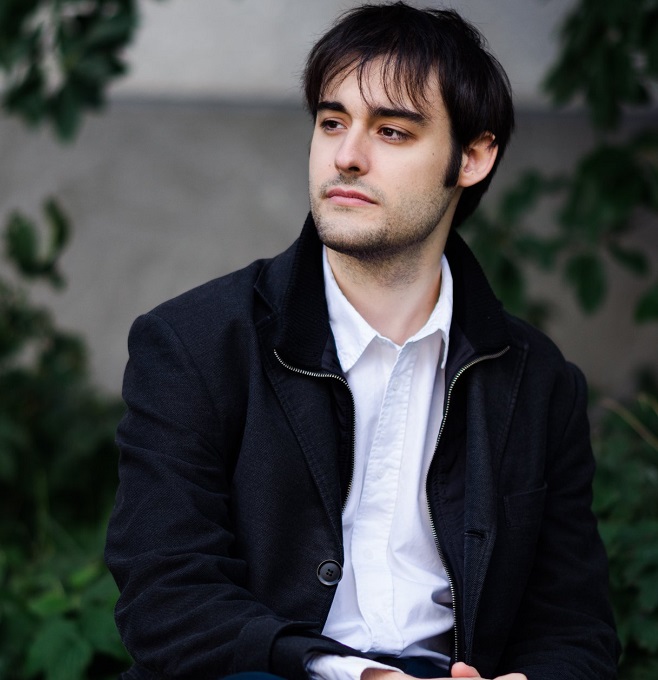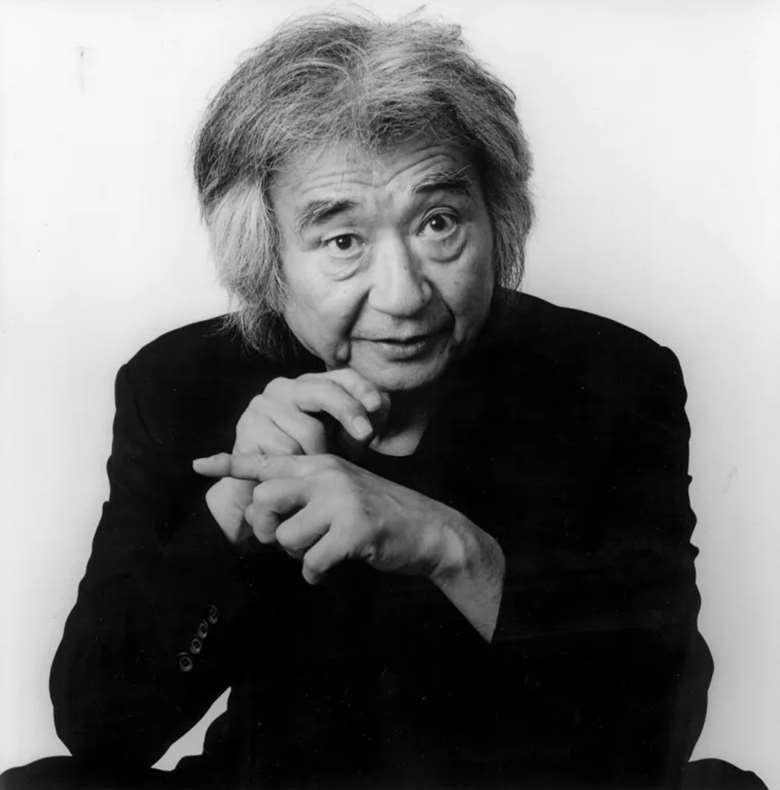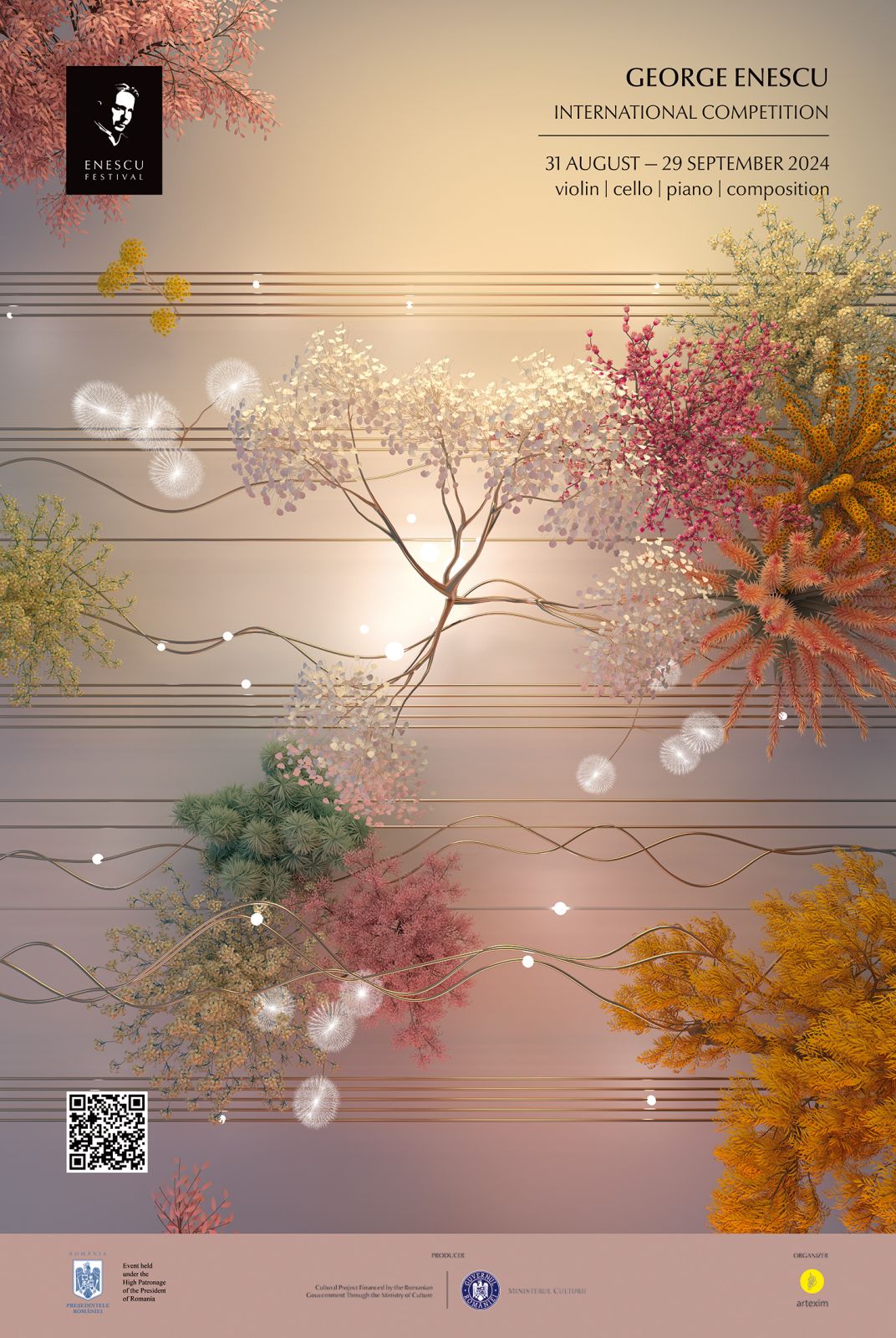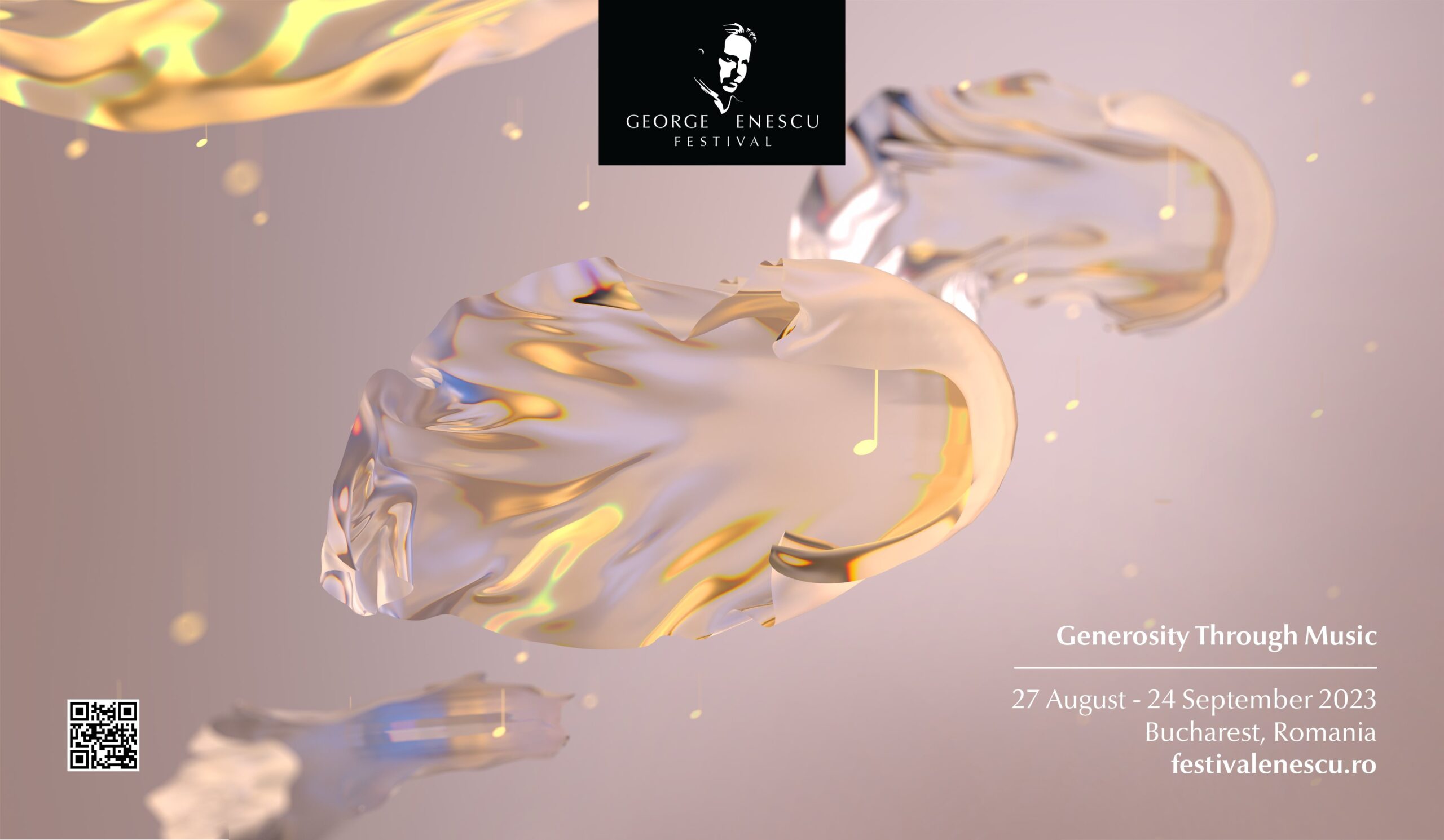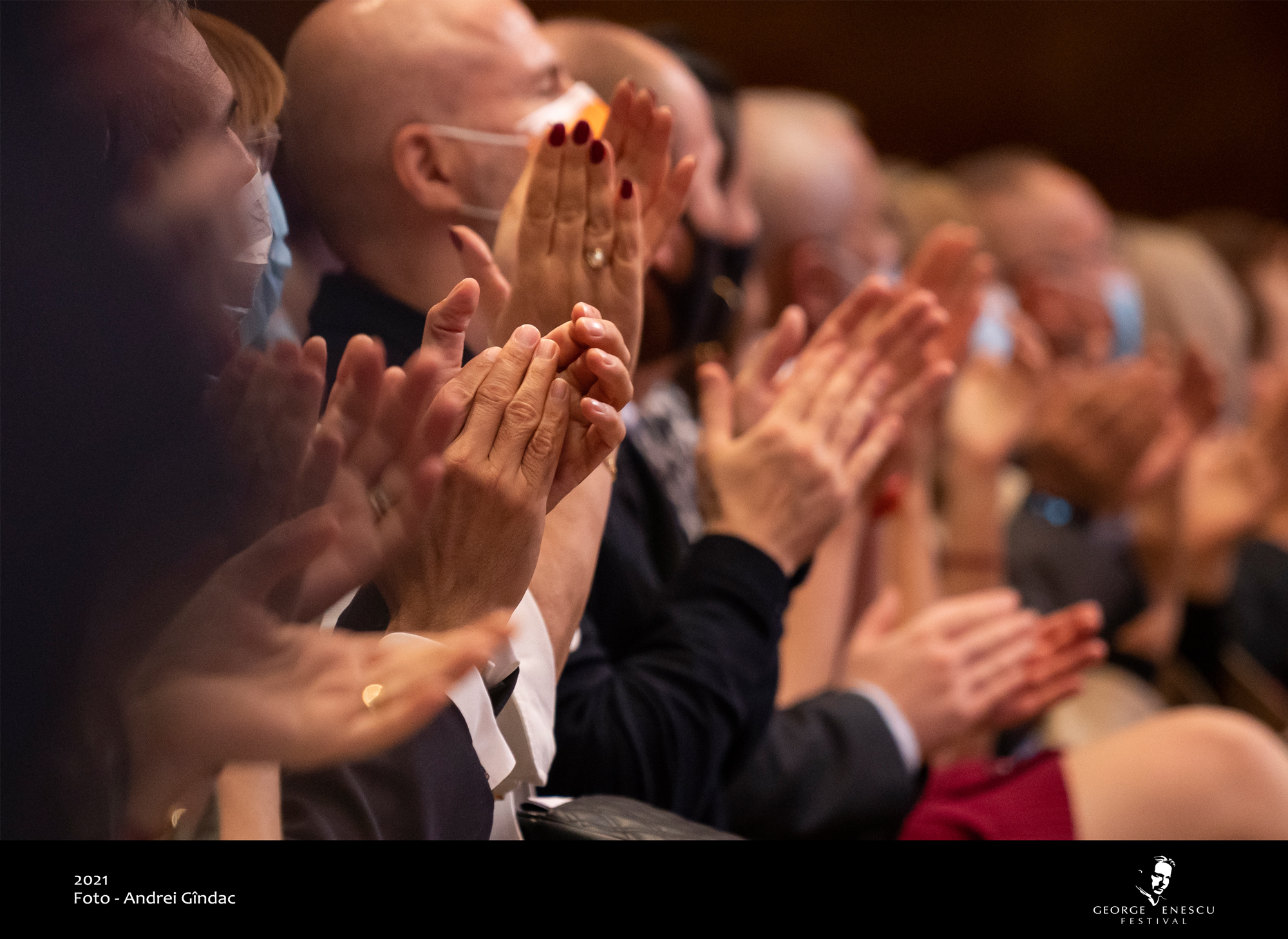Interviews with the Winners of the 2020 George Enescu International Competition | COMPOSITION Section
Today: The Winner for Originality, MARC MIGÓ CORTÉS – 27 years old, from Spain | His work is 4 SONGS IN RED
As a winner of the 2020 George Enescu Competition in the Composition section, what do you think it takes for audiences to understand better and learn to appreciate contemporary music (modern classical music)?
There are many things audiences can do to understand better contemporary music. There are also many things classical music institutions, performers and composers can do to not only disseminate new music but present it in an utterly engaging way. I think it is far more interesting to focus on this latter issue, as we, music makers, can do much more and have a higher responsibility for what we love than any newcomer with a healthy curiosity. In other words, we can control how to present our artistry, but cannot, nor should we, directly tell anyone how to feel towards it. I believe the George Enescu International Festival is a wonderful example of how a country values its musical heritage, to the point that each of its editions becomes one of the main musical events worldwide. I find the 2020 Enescu Competition’s message of Beauty in Life particularly spot-on, as it is precisely beauty what many people fail to see in modern classical music. Our sphere is not a luxury, nor a sonorous embodiment of elitism. It is a vital necessity, a reflection of our human condition. We need to present what we do not from ivory towers, but at street level. Those who are naturally sensible and curious will undoubtedly be drawn by the immense riches music can offer today.
We all agree that art tells us something about the world in which it was created, as artists cannot create in a vacuum. Why do you think “the music we live in” is important to us (the contemporary music, the one that reflects artistically our present reality, our life)?
I think music from all ages is important, in the way that it always tells us something about ourselves, although the composer who wrote it or the performer(s) who played it may not be among us anymore. Is it not the hope of creating something perennial, one of the main artistic aspirations, which has in turn generated so many memorable masterworks still being played and revived today? Italo Calvino’s text about the classics comes to mind. Perhaps what is different in the “music we live in” is its surface, which reflects an immediacy to our surroundings that may only be relatable to this generation, in the same way that we can understand and enjoy the Viennese charm in Schubert, but do not experience it as something contemporary.
If we regard contemporary art as an opportunity for self-reflection that we otherwise rarely have the time and energy to put in throughout our hectic lives (particularly in a year like 2020 has proven to be so far), what personal insights does your score reflect? What is the story you wanted to share through this winning composition?
This question will be answered in the following one, but I can add that I did not want to renounce to beauty while writing about truly dire subjects. Music offers such an extraordinary chance of experiencing opposites! This pandemic has stimulated me to keep pursuing, in a more unflinching manner, if possible, what I always have done anyways as a composer: to detox from the outside world and work, alone, in something new.
There is art in naming any artistic work, a strategy in using symbolism or metaphors. What story is in your score’s title?
My score title – 4 SONGS IN RED – is indissociable from my main source of inspiration for this particular work: Svetlana Alexievich’s “Secondhand Time”, translated into English by Bela Shayevich. It is an absolutely fascinating book, highly musical on its own, containing dozens of voices that are masterly intertwined by Alexievich into a polyphony of sorrow, remembrance, and elation, unraveling an ultimate warning: a not so distant past comes to us once again. Young people who forget who Stalin was wear shirts with his face on them; manipulation through fake news is rampant; popular protests are crushed or encouraged by political leaders for their own interest, sometimes the two at once. Although “Secondhand Time” revolves around the life of Soviet and ex-Soviet people, its message immediately transcends any localisms. I was immediately drawn to setting some of its pages to music, which I could do thanks to the generosity of Ms. Alexievich and her agent. This is my first work ever to use voice, and I could not have hoped for a more successful debut than what the George Enescu Competition award has done for me. I ultimately wish that this recognition will also bring forward many opportunities for shedding light upon the persona and literary corpus of this incredible Belarusian writer.
How do you relate to the world of international competitions? Does participating in a prestigious competition influence the way you write your music? What impact on your career did you notice after winning an international award?
I try not to think about competitions at all, to keep my creativity detached from any compromise. Although the relationship between a composer and its audience is complex and highly enriching, I write first and foremost to satisfy an intimate, personal need. To write a piece with the specific aim of winning any given competition – and pleasing the jury – is a speculative and dishonest task, and I would not expect any serious artist to do so, unless if pressed by an extreme economical urgency. I believe composers should write their works first – ideally, on commission-, and then look for fitting ways to get more performances and recognition, not the other way around. In the end, the most important element – I would hope so – that can get through the most prestigious competitions in the world is an honest spirit.
Of course, winning any international award brings a lot of attention to one’s production, which is something very much worth celebrating. Among my different awards, I especially value this George Enescu Competition prize, as it has been for so many years such a fertile catalyst for music-making of the highest level!
What are the three words that best describe your experience as a participant in this unusual edition of the Enescu Competition this year?
Fortunate, Grateful, Stimulated.
As you know, the 2020 Enescu Competition’s tagline is Beauty in Life. When the escalation of the pandemic worldwide threatened the Competition, we moved forward reorganizing it online and adapted swiftly while keeping room in our lives not only for beauty and dreams but also for their realization. We embraced life and beauty because Music must go on. Please take a minute and share with us – What Beauty in Your Life you treasure the most and you’d like to save through the pandemic no matter what?
The same Beauty as in before or after this pandemic – loved ones, friends, and lots of music. We are very lucky to have the technology we possess today, which has helped in keeping a certain sense of “normality”. For me, I need not much more than a pencil and paper to compose. I feel so sorry for all my friends who have seen their performance activities drop dramatically!
